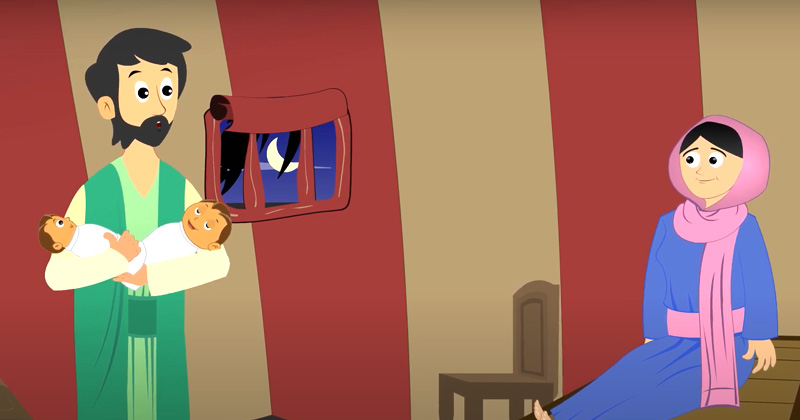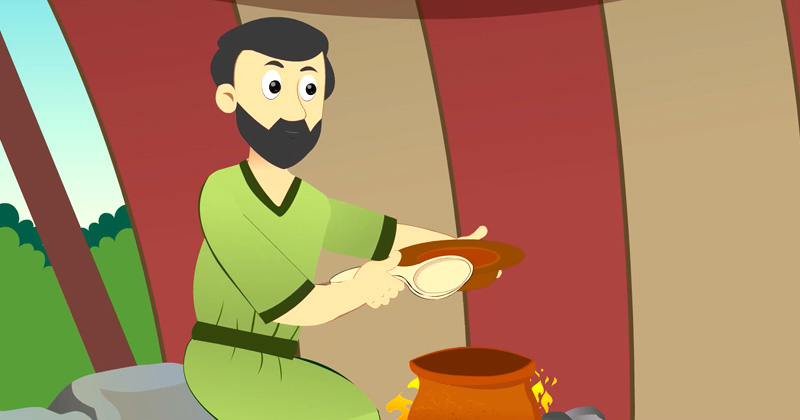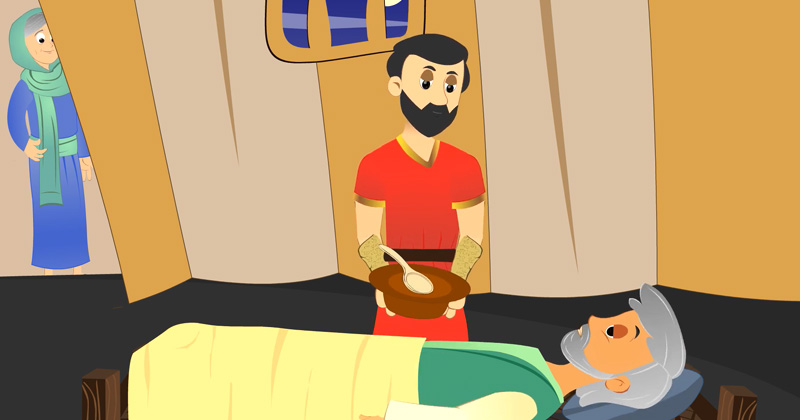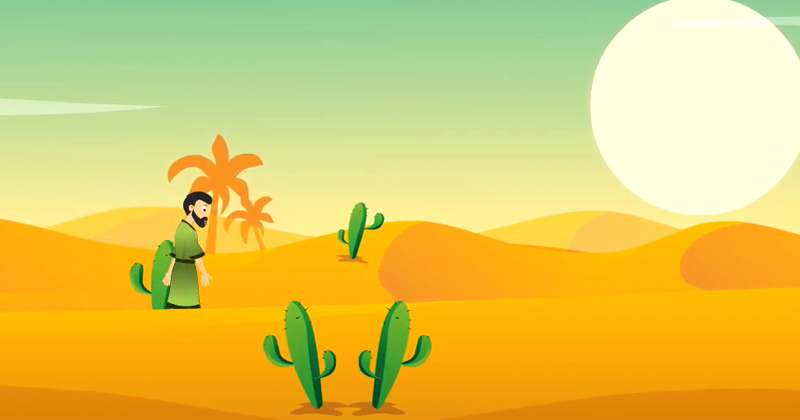Abraham had received a promise from God that he would have numerous children and become the ancestor of many nations. God assured Abraham that He would be with him and his descendants. This promise would be passed down to each firstborn child for generations.
Abraham's son, Isaac, grew up and married a woman named Rebekah. Both Isaac and Rebekah didn’t have a child. However, Isaac had learned from his father that if he prayed to God, his prayers might be answered. Miraculously, God answered Isaac's prayer, and Rebekah became pregnant with twins.
She noticed that her babies were moving more vigorously than usual. She asked God, "Why is this happening to me?"
God replied, that the twins were very distinct from each other. One of them would become the leader of a stronger group of people, and the older one would serve the younger.
This was unusual because typically the older siblings are looked up to and followed by their younger siblings. But in this case, the older brother would work for the younger brother.
 When the twins were born, the eldest was named Esau. He was easily recognizable because he was red and covered in hair. Following him came his younger brother, Jacob.
When the twins were born, the eldest was named Esau. He was easily recognizable because he was red and covered in hair. Following him came his younger brother, Jacob.
As the boys grew older, they developed different interests. Esau excelled at hunting and enjoyed outdoor activities, while Jacob preferred staying at home and tending to his own affairs.
Since Jacob spent a lot of time at home, he learned to cook with his mother. One day, Jacob prepared a delicious stew that everyone enjoyed. Esau had been out hunting since early morning and returned home hungry. The aroma of the stew reached him from a distance.
As soon as Esau arrived, he urgently asked Jacob, "Quick, let me have some of your stew! I'm starving!" Jacob responded, "First, give me your birthright."
In Jacob and Esau's family, the birthright was the belief that the oldest child should receive a double portion of their parents' inheritance when they passed away. This inheritance included things like money, land, and livestock.
 When Jacob asked Esau for his birthright, Esau should have refused, recognizing its significance and understanding that every gift he received was a blessing from God. However, consumed by his hunger, Esau thoughtlessly replied, "Yes, fine! You can have my birthright. Just give me some food before I starve to death."
When Jacob asked Esau for his birthright, Esau should have refused, recognizing its significance and understanding that every gift he received was a blessing from God. However, consumed by his hunger, Esau thoughtlessly replied, "Yes, fine! You can have my birthright. Just give me some food before I starve to death."
By prioritizing his immediate hunger over his birthright, Esau made a regrettable decision. He chose something trivial like a bowl of soup over his special future gift, disappointing God in the process.
Isaac, in his old age and loss of sight, desired to bestow his blessing upon his eldest and favored son, Esau. This blessing held the significance of the special promise that God had made to Abraham, their grandfather, and then to Isaac himself.
Esau was skilled at hunting and Isaac loved the food that he brought home. So Isaac instructed Esau to go hunting and prepare a special meal for him, after which he would receive the blessing.
Rebekah overheard their conversation and hurriedly informed her favorite son, Jacob. She revealed her plan to Jacob, saying, "Your father is about to bless Esau, but I want you to receive the blessing instead. Go and fetch two of our goats, and I will prepare them exactly as Isaac prefers. Then you can take it to him, and he will give you the blessing."
Jacob expressed his concern, "But mom, Esau is a hairy man. What if dad touches me and realizes that I'm deceiving him?"
Rebekah reassured him, "Don't worry, you can wear Esau's clothes, and we'll place goat hair on your hands and neck so he won't suspect a thing."
They followed the plan, and Jacob approached his father, pretending to be Esau.
 "Hello, father," Jacob greeted him.
"Hello, father," Jacob greeted him.
"Hello, and who is this?" Isaac inquired.
"It is me, Esau. I have brought you the food you desired so that you may grant me my blessing," Jacob lied.
Isaac requested, "Come closer, so I can feel you and confirm that you are truly my eldest son, Esau."
Jacob approached Isaac, who felt his hands and remarked, "Your voice sounds like Jacob's, but your hands feel like Esau's. Are you truly Esau?"
Jacob made the choice to lie once again, stating, "Yes, I am Esau."
Satisfied, Isaac ate the meal. When he finished, he requested, "Come and kiss me." As Jacob went to kiss him, Isaac smelled the clothes he was wearing to ensure the scent matched Esau's. Believing that Jacob was indeed Esau, Isaac bestowed the blessing upon him.
Just as Jacob completed receiving the blessing, he thought he heard Esau approaching, prompting him to swiftly slip away through the back of the tent. As Jacob left, Esau entered with the meal he had prepared for his father.
Confused, Isaac asked, "Who are you?"
"It's me, your son Esau. I've come for my blessing," Esau replied.
"But I just gave you your blessing," Isaac realized, feeling the weight of the deception. Esau cried out in anguish, pleading, "Bless me too, Father!"
"There is no blessing left," Isaac sadly declared.
 Due to Jacob's actions, Esau was filled with anger, leading to such strong resentment that Jacob had no choice but to flee in order to secure his own safety. After Jacob's departure, he experienced a taste of his own deceit. He had to endure seven years of waiting before he could marry the woman he desired, only to be deceived into marrying the wrong woman.
Due to Jacob's actions, Esau was filled with anger, leading to such strong resentment that Jacob had no choice but to flee in order to secure his own safety. After Jacob's departure, he experienced a taste of his own deceit. He had to endure seven years of waiting before he could marry the woman he desired, only to be deceived into marrying the wrong woman.
Make wise choices because you never know how they might shape your life in the future.